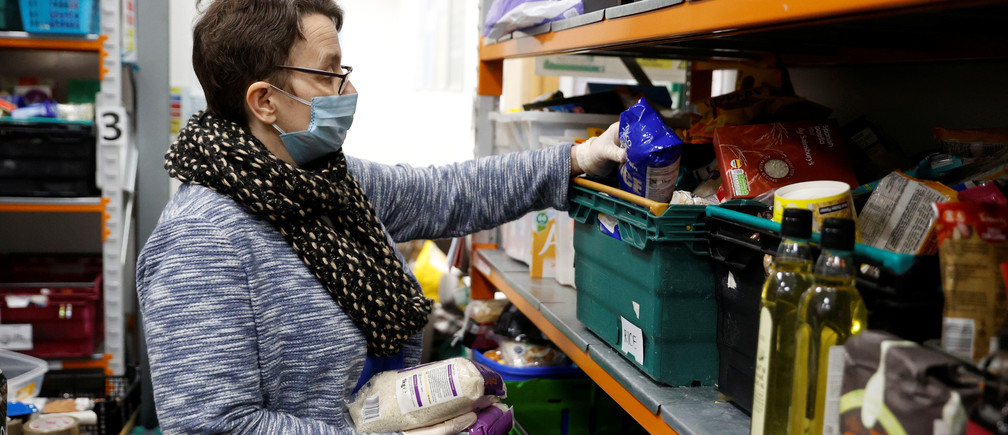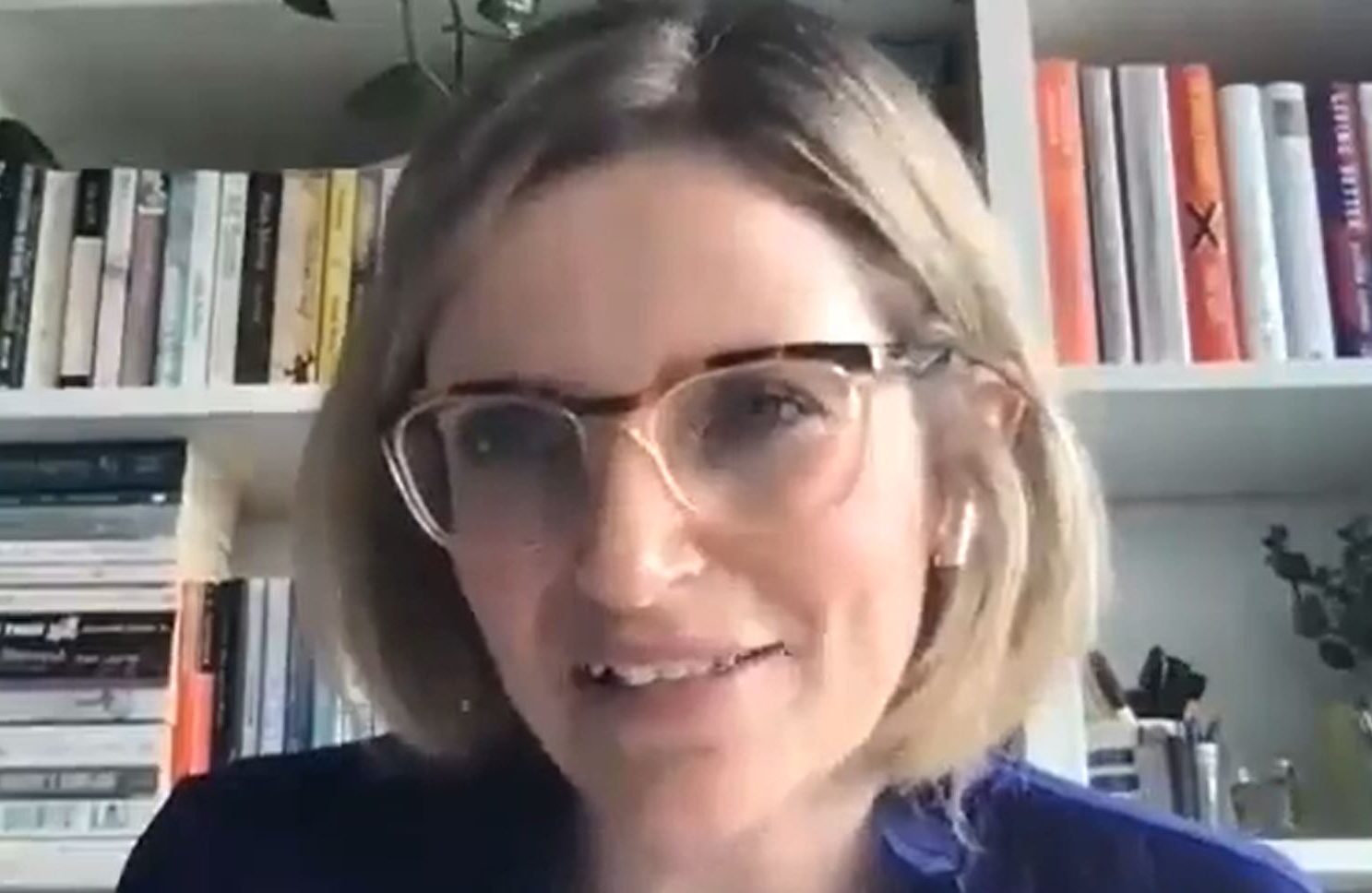Professor Stephan Chambers, Institute Director, was part of an expert panel at the The 2021 Entrepreneurs for Resilience Award ceremony on 19 May. The article below summarises this year’s edition and includes Professor Chamber’s reflection on building societal resilience through the access to healthcare.
The 2021 Entrepreneurs for Resilience Award ceremony on 19 May featured thought-provoking discussion and announcement of the winners of the main award and the first-ever People’s Choice Award.
With a focus on building societal resilience through better health, the Swiss Re Foundation’s 2021 Entrepreneurs for Resilience Award recognises and nurtures entrepreneurial approaches that are improving low-income people’s financial access to healthcare. Moderated from the Swiss Re Centre for Global Dialogue by Centre Head Rolf Bachmann and open to the public, the live virtual award ceremony on 19 May drew an audience of 280 participants, including re/insurance experts, corporate leaders, entrepreneurs and representatives of NGOs and governments in emerging countries.
Wide disparities in access
While illness and disease are universal, access to healthcare is not – not only because people may not be able to physically reach health facilities and professionals but because they may lack the money to make use of the care available. In his introduction to the ceremony, incoming Chairman of the Swiss Re Foundation Board Sergio Ermotti spoke of the Foundation’s commitment to supporting entrepreneurial ventures that address the steep financial barriers low-income people face in trying to get the quality healthcare their families need. To underscore the scale of the problem, he cited figures including the Geneva Association’s estimate that the health insurance protection gap is three times larger than the gap in natural hazard protection, or the equivalent of 1% of emerging markets’ aggregate GDP.
With the participation of an expert panel, award jury members and the CEOs of the Resilience Award finalists, most of the event programme was devoted to a deeper exploration of the healthcare access challenges people face in low-and middle-income countries and how the three ventures that made it to the final round are fostering health resilience through innovative, tech-enabled solutions. The panel included representatives of the sectors with which the Swiss Re Foundation primarily partners: Mary Ellen Iskenderian, President and CEO of Women’s World Banking; Stephan Chambers of the Marshall Institute at the London School of Economics and Political Science and Veronica Scotti, Chairperson of Swiss Re Public Sector Solutions.
Golden opportunities, not silver bullets
In her remarks, Mary Ellen Iskenderian emphasised that health crises burden low-income people in developing countries not only through their direct costs – which sometimes force them to sell productive assets like livestock – but through opportunity costs such as lost wages. Noting the gender protection gap and that women are generally the managers of household risk, she argues that together these costs “dampen risk-taking that could improve households’ economic well-being” in the longer run. While technology is a crucial enabler of financial inclusion in healthcare, especially within the most isolated communities, she cautions that smartphone availability and digital literacy are still lacking in many of the communities in greatest need of support.
For Stephan Chambers, inadequate financial access to healthcare is primarily a “problem of coordination rather than resource” owing to the complex web of institutional, political and cultural factors involved. He sees signs of progress in the fact that social entrepreneurs “no longer go in thinking they know best” but rather realise the best solutions arise from collaborating across sectors and sharing learnings widely. In his view, geography and infrastructure are no longer destiny thanks to technology’s ability to support scaling and to reduce marginal costs. Yet like extractive industries of the past, technology presents risks, for instance, to security and privacy, that must be managed particularly to protect the most vulnerable users.
Veronica Scotti believes that any entrepreneurial effort to build resilience must consider the negative impacts of social inequality. The unit that she leads, Public Sector Solutions, works with governments and NGOs such as Women’s World Banking to remove the structural issues that prevent those on low-incomes from being included in a risk management framework such as insurance. Describing the Swiss Re Foundation as a source of “crucial seed capital to early-stage social enterprises in need of a leg up,” she stressed the importance of understanding where and for how long governments should incentivise entrepreneurs and corporations to invest in promising solutions. The COVID-19 pandemic has created an unexpected opportunity for the financial sector to demonstrate its capacity to be a “first-line responder” that contributes to the social good.

Entrepreneurial solutions to access challenges
The panel discussion set the stage for the next segment of the award ceremony, in which each finalist showcased its approach to improving low-income people’s healthcare access with a four-minute video about its venture followed by a Q-and-A exchange between Rolf Bachmann and its CEO. Addressing the audience and each finalist in turn, three members of the award jury – Francis Blumberg, Sharon Ooi and Martin Zingg – then shared the jury’s reasons for selecting these ventures as award finalists and gave the CEOs constructive feedback to consider in their next phase of their business development.
The finalists were chosen from 245 applicants in 81 countries:
- Clinicas del Azúcar is a chain of affordable diabetes and hypertension management clinics that offers accessible preventative and supportive care to underserved Mexicans. Each patient receives a personalised plan and all the necessary treatment for their condition(s) for a flat-rate annual membership fee of USD250-300. In nine years, Clinicas del Azucar has grown into Mexico’s largest private provider of specialised diabetes care, with more than 153 000 patients served to date.
- WellaHealth offers Nigerians micro-insurance plans starting at USD 1 per month that cover common illnesses such as malaria, including drugs to treat them, through its network of 1200 local pharmacies. For USD 1.50 monthly, plan users have access to telemedicine consultations, chronic disease screening, drug discounts and cashback to offset hospital bills. By integrating other fintech partners’ solutions into its platform, WellaHealth also offers financial solutions such as a free health savings wallet and instant point-of-care credit set using AI-powered creditworthiness scoring.
- clinicPesa runs a digital platform that offers low- and middle-income Ugandans tailored, flexible healthcare financing. Users can set aside money in increments and use it to pay medical bills at any clinicPesa-registered healthcare facility, including some pharmacies. Using mobile money transaction records, the system also computes a credit score and automatically offers a suitable micro-loan when a bill exceeds a user’s savings. A recently formed partnership with the telecom firm MTN gives the company direct access to over 10 million potential customers.
And the winners are…
Finally, it was time for Fritz Gutbrodt, a Foundation Trustee and chairman of the award jury, to announce the winner of the 2021 Entrepreneurs for Resilience Award: Clinicas del Azúcar. Second place went to clinicPesa and third to WellaHealth. As every year, the jury also decided how the total award grant of USD 700 000 would be divided among the finalists. Clinicas del Azúcar will receive USD 300 000, clinicPesa USD 250 000 and Wellahealth USD 150 000. All three ventures will also benefit from coaching and technical advice provided by Swiss Re experts.
In an exciting new twist on the award programme, the Swiss Re Foundation invited not only Swiss Re community members but also the general public to determine which of the three Entrepreneurs for Resilience Award finalists should win the first-ever People’s Choice Award. In the three weeks up to 19 May, more than 41 000 people voted online for their favourite venture. At the end of ceremony, Foundation Director Stefan Huber Fux announced the winner of the popular vote: clinicPesa. Its reward will be the opportunity to connect with potential investors, mentors and business support providers at an event hosted by Sankalp Forum, one of the world’s largest platforms for impact enterprises.
Although participants weren’t able to gather in person, the ceremony had a relaxed feel and ended on a festive note with a performance by the Redfourth Chorus of the Zulu-language gospel song “Avulekile Amasango”.
The article first appeared on the blog of Swiss Re Foundation on the 29th of June 2021





